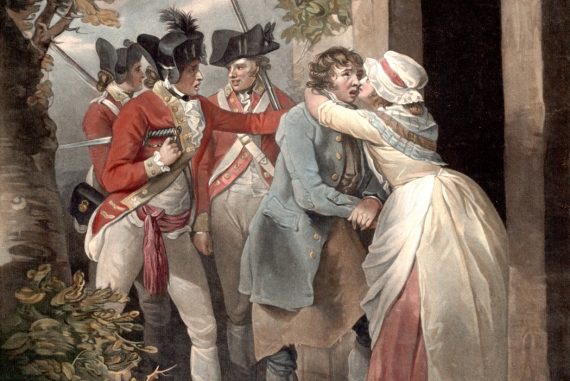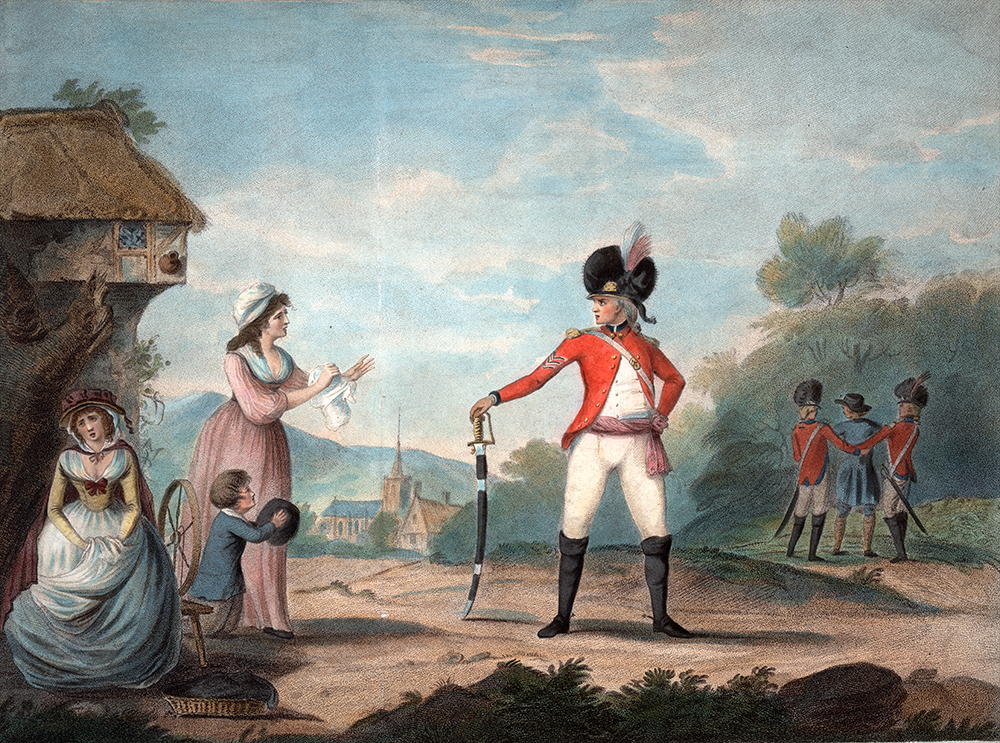《最后的诗歌》:13: 逃兵
《最后的诗歌》
XIII
第十三首
逃兵
The Deserter
英国 A. E. 豪斯曼原著
Alfred Edward Housman (1859 – 1936)
徐家祯翻译

„What sound awakened me, I wonder,
For now ’tis dumb.”
„Wheels on the road most like, or thunder:
Lie down; ’twas not the drum.”
Toil at sea and two in haven
And trouble far:
Fly, crow, away, and follow, raven,
And all that croaks for war.
„Hark, I heard the bugle crying,
And where am I?
My friends are up and dressed and dying,
And I will dress and die.”
„Oh love is rare and trouble plenty
And carrion cheap,
And daylight dear at four-and-twenty:
Lie down again and sleep.”
„Reach me my belt and leave your prattle:
Your hour is gone;
But my day is the day of battle,
And that comes dawning on.
„They mow the field of man in season:
Farewell, my fair,
And, call it truth or call it treason,
Farewell the vows that were.”
„Ay, false heart, forsake me lightly:
’Tis like the brave.
They find no bed to joy in rightly
Before they find the grave.
„Their love is for their own undoing,
And east and west
They scour about the world a-wooing
The bullet to their breast.
„Sail away the ocean over,
Oh sail away,
And lie there with your leaden lover
For ever and a day.”

“什么声音把我吵醒,我奇怪,
现在却已声响全无。”
“应该是路上的车轮,或者打雷,
躺下吧,这不是战鼓。”
海上正艰苦战斗,两人躲在掩蔽所,
远离一切灾难:
乌鸦,飞走;渡鸦,跑开,
别呱呱讲着战争的不吉之言。
“瞧,我听见军号在呜咽,
我在什么地方?
我的战友都已整装待命准备送死,
我也要穿好衣服战死沙场。”
“哦,爱情稀少,烦恼太多,
腐尸价廉,
白昼珍贵,对廿四岁的少年而言,
躺下吧,继续睡眠。”
“递给我皮带,别再废话连篇:
你的时间已经用完;
战斗从黎明已经开始,
我要战斗一天。
“他们正在应季收割田里的汉子,
我的爱人,再见,
无论你说这是诚实还是不忠,
再见了,我以前发过的誓言。”
“唉,负心汉,轻易就将我抛开:
这算是英雄好汉。
当然,他们找不到眠床来享受,
在他们找到坟墓之前。
“他们爱的是自己的毁灭,
从东边找到西边,
他们寻遍整个世界,
追到的只是胸口那颗子弹。
“乘风破浪,远涉重洋,
喔,驾船离开,
与你铅做的爱人睡在一起吧,
永生永世,千秋万代。”
二0二二年四月二十日
译于澳大利亚刻来佛寺爱闲堂
* 豪斯曼的这首诗是诗集《最后的诗歌》中的第 13 首。
这首诗是一个逃兵与他情人的对话。逃兵对他自己脱离队伍,贪生怕死而感到 有种犯罪感和羞耻感,所以,决定离开他的爱人,与他的战友一起,投入战斗。诗人 认为,士兵打仗的最后结果就是送死,这是豪斯曼在诗歌中表现的一贯观点。逃兵的 爱人一开始企图劝阻她的情人,失败之后,她就开始诅咒她的情人是“负心汉”、“轻易 将我抛开”,还说男人“爱的是自己的毁灭”,因为 “他们寻遍整个世界”,最后找到的 “只是胸口那颗子弹”,而与“铅做的爱人睡在一起”,正是每个战士的结局。那“铅做的爱人”是比喻“子 弹”。
诗的第六节第一句说:“他们正在应季收割田里的汉子”也是用的比喻手法,说 打仗就像到了收获的季节割庄稼一样,把战场上的士兵一批一批“收割”掉。
原诗九节,每节四句。译诗双句押韵,每节一韵。
